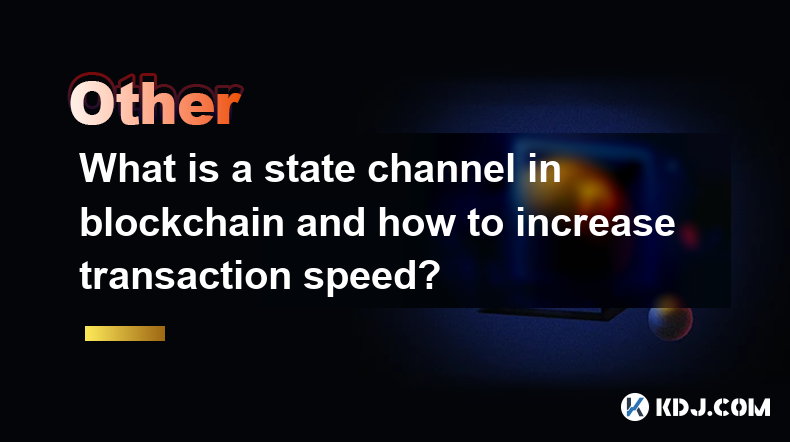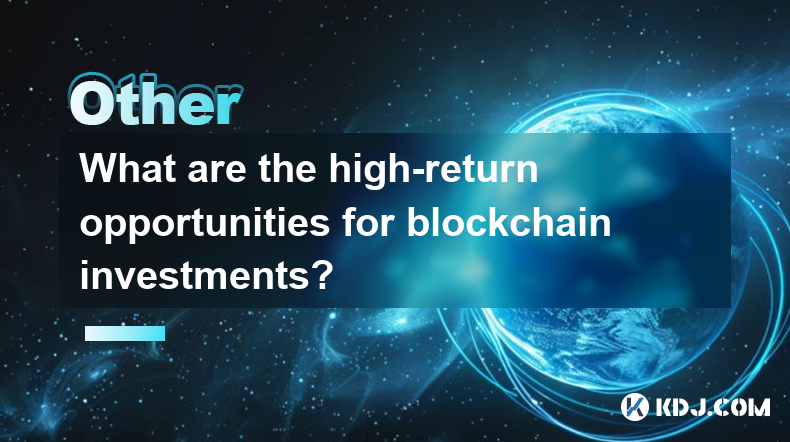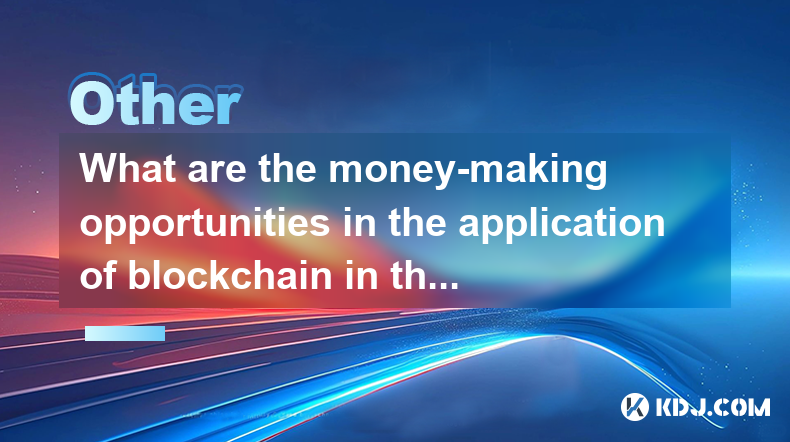-
 Bitcoin
Bitcoin $79,012.1761
-4.78% -
 Ethereum
Ethereum $1,570.4026
-12.09% -
 Tether USDt
Tether USDt $0.9994
-0.02% -
 XRP
XRP $1.9666
-7.46% -
 BNB
BNB $555.4328
-6.02% -
 USDC
USDC $0.9999
-0.01% -
 Solana
Solana $107.5201
-9.67% -
 Dogecoin
Dogecoin $0.1506
-10.27% -
 TRON
TRON $0.2315
-2.62% -
 Cardano
Cardano $0.5814
-10.27% -
 UNUS SED LEO
UNUS SED LEO $8.8602
-2.17% -
 Chainlink
Chainlink $11.3795
-10.04% -
 Toncoin
Toncoin $3.0063
-7.92% -
 Stellar
Stellar $0.2370
-5.38% -
 Avalanche
Avalanche $16.1395
-9.48% -
 Shiba Inu
Shiba Inu $0.0...01134
-7.55% -
 Sui
Sui $1.9135
-13.06% -
 Hedera
Hedera $0.1425
-11.59% -
 Polkadot
Polkadot $3.7145
-5.76% -
 MANTRA
MANTRA $5.9824
-4.31% -
 Bitcoin Cash
Bitcoin Cash $272.1059
-9.40% -
 Litecoin
Litecoin $71.2279
-13.11% -
 Dai
Dai $1.0000
-0.02% -
 Ethena USDe
Ethena USDe $0.9987
-0.05% -
 Bitget Token
Bitget Token $4.1866
-5.67% -
 Pi
Pi $0.5915
4.23% -
 Monero
Monero $200.3568
-5.71% -
 Hyperliquid
Hyperliquid $10.5427
-10.74% -
 Uniswap
Uniswap $5.1188
-11.73% -
 OKB
OKB $50.3711
-2.37%
What is a state channel in blockchain and how to increase transaction speed?
State channels boost blockchain transaction speeds by moving transactions off-chain, significantly reducing the load on the main blockchain and lowering fees; only the final state is recorded on-chain.
Feb 28, 2025 at 07:24 pm

What is a State Channel in Blockchain and How to Increase Transaction Speed?
Key Points:
- State Channels Explained: A detailed explanation of what state channels are, how they work, and their fundamental advantages in improving transaction speeds on blockchains. We'll cover the underlying mechanisms and compare them to traditional on-chain transactions.
- Transaction Speed Limitations of Blockchains: An in-depth analysis of the factors that limit transaction speeds on blockchains, including block size limitations, network congestion, and consensus mechanisms.
- Methods for Increasing Transaction Speed Using State Channels: We will explore various techniques and strategies for leveraging state channels to enhance transaction speeds. This includes discussions of different state channel architectures and their respective trade-offs.
- Other Techniques for Improving Transaction Speed (Beyond State Channels): A survey of alternative approaches for boosting blockchain transaction speeds, providing context and comparison to the capabilities of state channels. This includes layer-2 scaling solutions, sharding, and improved consensus mechanisms.
What is a State Channel in Blockchain?
- Understanding On-Chain Transactions: Before delving into state channels, it's crucial to understand the limitations of traditional on-chain transactions. Every transaction on a blockchain, like Bitcoin or Ethereum, requires broadcasting and verification by the entire network of nodes. This process, while ensuring security and decentralization, is inherently slow and resource-intensive. The time it takes for a transaction to be confirmed depends on several factors, including network congestion, block propagation speed, and the chosen consensus mechanism (Proof-of-Work or Proof-of-Stake). Moreover, each transaction incurs a transaction fee, which can become significant during periods of high network activity. These limitations create a bottleneck, hindering the scalability and efficiency of blockchain networks, especially for applications requiring high throughput, such as decentralized exchanges or micropayment systems. The inherent limitations of blockchains, such as fixed block sizes and the need for consensus mechanisms, lead to significant constraints on transaction throughput.
- Introducing State Channels: Off-Chain Scaling Solution: State channels provide a powerful solution to overcome these limitations. They are off-chain scaling solutions that allow for multiple transactions to occur between participants without directly interacting with the main blockchain. Instead, transactions are conducted within a "channel," a privately managed agreement between participants. This channel is established and secured by a smart contract on the blockchain, acting as a custodian and enforcer of the agreement. Once the channel is opened, participants can exchange funds or data numerous times without incurring the fees and delays associated with on-chain transactions. The final state of the channel (the balance of funds or data after all transactions) is then recorded on the blockchain in a single, efficient transaction. This significantly reduces the load on the main blockchain, enabling faster and cheaper transactions. Think of it like writing a check – you don't need to notify the bank after every transaction you make using that check; only when the check is finally cashed.
- The Mechanics of State Channels: The process begins with the creation of a smart contract on the main blockchain. This contract defines the initial state of the channel, typically including the participants' balances. Participants then engage in a series of transactions off-chain, updating the channel's state. These off-chain transactions are not broadcast to the entire network; they are only shared between the participants. To ensure accountability and prevent fraud, participants periodically sign and exchange "signed updates" to the channel's state. These updates serve as proof of the transactions that have taken place within the channel. When the participants wish to close the channel, the final state is submitted to the smart contract on the blockchain. The smart contract then verifies the validity of the final state based on the signed updates, and distributes the funds accordingly. This process ensures the integrity and security of the channel, preventing any single participant from cheating.
- Advantages of Using State Channels: State channels offer several compelling advantages. Firstly, they drastically increase transaction speed and throughput. Since transactions are handled off-chain, the blockchain is only burdened with a single transaction for opening and closing the channel. Secondly, they significantly reduce transaction fees. The only fees incurred are those associated with opening and closing the channel; transactions within the channel are essentially free. Thirdly, state channels enhance privacy. Transactions within the channel are not visible to the public, only the opening and closing transactions are recorded on the blockchain. Finally, they improve scalability, enabling blockchain networks to handle a much larger volume of transactions without sacrificing security or decentralization. However, it's important to note that state channels require participants to remain online and actively engage in the channel for the duration of its existence. If a participant goes offline, the channel cannot be updated.
How to Increase Transaction Speed Using State Channels
- Optimizing Channel Management: Efficient channel management is critical for maximizing transaction speed. This involves strategies for minimizing the time required to open and close channels, as well as optimizing the frequency of state updates. Techniques such as using faster consensus mechanisms for channel management or employing efficient cryptographic signature schemes can significantly reduce the overhead associated with channel operations. The design of the smart contracts governing the channels also plays a crucial role. Well-designed contracts can streamline the process of verifying state updates, ensuring quick and efficient closure of the channels.
- Implementing Efficient State Update Mechanisms: The frequency and method of updating the channel's state directly impact transaction speed. Strategies such as batching multiple transactions into a single state update can reduce the number of interactions with the smart contract. Furthermore, employing efficient cryptographic techniques for signing and verifying state updates can further enhance speed. Using techniques like Merkle trees to aggregate transactions into a single hash can reduce the data size of updates and thereby improve transaction speed.
- Utilizing Advanced State Channel Architectures: Different architectures for state channels offer varying levels of efficiency. For instance, bidirectional channels allow for simultaneous transactions between two participants, improving throughput compared to unidirectional channels. Furthermore, hierarchical channel networks, where channels are nested within other channels, can improve scalability and efficiency. The choice of architecture depends on the specific application and its requirements for transaction speed, scalability, and complexity.
- Combining State Channels with Other Scaling Solutions: State channels are often used in conjunction with other scaling solutions to achieve optimal performance. For example, combining state channels with layer-2 scaling solutions like Plasma or rollups can further improve transaction speed and scalability. This hybrid approach leverages the strengths of both technologies, creating a more robust and efficient system.
Other Techniques for Improving Transaction Speed (Beyond State Channels)
- Layer-2 Scaling Solutions: Layer-2 scaling solutions operate on top of the base layer blockchain, handling a significant portion of transactions off-chain. This reduces the burden on the main blockchain, leading to faster transaction speeds. Examples include Plasma, Optimistic Rollups, and ZK-Rollups, each with its own trade-offs in terms of security, throughput, and complexity.
- Sharding: Sharding involves dividing the blockchain into smaller, more manageable pieces called shards. Each shard handles a subset of transactions, enabling parallel processing and significantly increasing throughput. This approach requires careful consideration of security and data consistency across shards.
- Improved Consensus Mechanisms: The consensus mechanism used by a blockchain directly impacts transaction speed. Proof-of-Stake (PoS) mechanisms are generally faster than Proof-of-Work (PoW) mechanisms because they require less computational power to reach consensus. Furthermore, advancements in consensus algorithms, such as Delegated Proof-of-Stake (DPoS) or practical Byzantine Fault Tolerance (pBFT), can further enhance transaction speeds.
FAQs:
Q: What are the limitations of state channels?
A: State channels require participants to remain online and actively engage with the channel. If a participant goes offline, the channel becomes unusable until they reconnect. Furthermore, the complexity of setting up and managing state channels can be a barrier to adoption, especially for less technically savvy users. The number of participants in a channel is also limited, restricting its scalability in certain applications. Finally, the security of state channels relies heavily on the security of the smart contract that governs them, making it crucial to have well-audited and robust contracts.
Q: How do state channels compare to other scaling solutions?
A: State channels offer a different approach to scaling than layer-2 solutions or sharding. State channels focus on off-chain transactions between a small number of participants, while layer-2 solutions handle a larger volume of transactions off-chain but still require interaction with the main chain. Sharding, on the other hand, increases throughput by parallel processing transactions across multiple shards. The choice of scaling solution depends on the specific application's needs and priorities. State channels are particularly well-suited for applications with frequent interactions between a small number of participants, such as decentralized exchanges or micropayment systems.
Q: Are state channels secure?
A: The security of state channels depends on the underlying blockchain and the security of the smart contract that governs the channel. Well-designed and audited smart contracts are crucial for preventing fraud and ensuring the integrity of the channel. Furthermore, the use of cryptographic techniques for signing and verifying state updates adds an extra layer of security, making it difficult for participants to cheat. However, vulnerabilities in the smart contract or exploits in the underlying blockchain could compromise the security of the channel.
Q: What are the real-world applications of state channels?
A: State channels are finding increasing applications in various areas, including decentralized exchanges (DEXs), micropayment systems, gaming platforms, and supply chain management. In DEXs, state channels enable fast and cheap trades between users, reducing reliance on the main blockchain. Micropayment systems can utilize state channels to facilitate small, frequent transactions without high transaction fees. Gaming platforms can use state channels for real-time interactions and data exchange between players. In supply chain management, state channels can enable secure and efficient tracking of goods and materials.
Q: What is the future of state channels in blockchain technology?
A: State channels are expected to play a significant role in the future of blockchain scaling. Ongoing research and development are focused on improving the efficiency, security, and usability of state channels. The integration of state channels with other scaling solutions is also a promising area of development. As blockchain technology matures and adoption grows, state channels are likely to become an increasingly important tool for improving the performance and scalability of blockchain networks. The development of user-friendly interfaces and tools for managing state channels will also be crucial for wider adoption.
Disclaimer:info@kdj.com
The information provided is not trading advice. kdj.com does not assume any responsibility for any investments made based on the information provided in this article. Cryptocurrencies are highly volatile and it is highly recommended that you invest with caution after thorough research!
If you believe that the content used on this website infringes your copyright, please contact us immediately (info@kdj.com) and we will delete it promptly.
- Tether to Acquire Majority Stake in Adecoagro; Bioceres Allegedly Next
- 2025-04-07 05:15:13
- Renowned Crypto Investor Has Outlined a Brave XRP Price Prediction
- 2025-04-07 05:15:13
- Toncoin (TON) Price Regains Traction and Might Soon Surge Further Toward the $4.80 Resistance Zone
- 2025-04-07 05:10:12
- The cryptocurrency mining landscape in 2025 is flourishing, with cloud mining shining as a highly accessible
- 2025-04-07 05:10:12
- Solaxy (SOLX) Raises $28M in Presale, Aiming to Be the Arbitrum of Solana
- 2025-04-07 05:05:13
- BingX Launches Perpetual Trading on TradingView
- 2025-04-07 05:05:13
Related knowledge

Is the ranking of Chinese blockchain apps real and reliable?
Apr 04,2025 at 09:01pm
The ranking of Chinese blockchain apps has become a topic of interest for many in the cryptocurrency community, as it provides insights into the popularity and adoption of blockchain technology within China. However, the reliability and authenticity of these rankings are often questioned. This article aims to delve into the factors that influence these ...

What are the future development trends of blockchain game development?
Apr 03,2025 at 05:00am
Blockchain technology has revolutionized various industries, and gaming is no exception. As we look to the future, several trends are set to shape the development of blockchain games. These trends not only promise to enhance the gaming experience but also to integrate blockchain technology more seamlessly into the gaming ecosystem. Let's explore these t...

What are the high-return opportunities for blockchain investments?
Apr 05,2025 at 02:35pm
Blockchain technology has revolutionized the financial world, offering numerous high-return investment opportunities. These opportunities span various sectors within the cryptocurrency ecosystem, including cryptocurrencies, decentralized finance (DeFi), non-fungible tokens (NFTs), and blockchain startups. Each of these areas presents unique risks and re...

What are the maintenance costs of blockchain system development?
Apr 03,2025 at 06:07pm
The maintenance costs of blockchain system development are multifaceted and depend on various factors. These costs can include technical maintenance, security updates, infrastructure expenses, and personnel costs. Understanding these elements is crucial for anyone planning to develop or maintain a blockchain system. Technical MaintenanceTechnical mainte...

What are the money-making models of blockchain games?
Apr 04,2025 at 02:00pm
Blockchain games have emerged as a revolutionary way for players to earn real money while enjoying their favorite pastime. These games leverage the power of blockchain technology to create unique money-making models that benefit both the players and the developers. In this article, we will explore the various money-making models of blockchain games and ...

What are the money-making opportunities in the application of blockchain in the field of Internet of Things?
Apr 05,2025 at 10:35pm
The integration of blockchain technology with the Internet of Things (IoT) presents numerous money-making opportunities. Blockchain, with its decentralized and secure nature, can revolutionize how IoT devices interact, manage data, and conduct transactions. This article will explore various avenues where entrepreneurs, developers, and investors can capi...

Is the ranking of Chinese blockchain apps real and reliable?
Apr 04,2025 at 09:01pm
The ranking of Chinese blockchain apps has become a topic of interest for many in the cryptocurrency community, as it provides insights into the popularity and adoption of blockchain technology within China. However, the reliability and authenticity of these rankings are often questioned. This article aims to delve into the factors that influence these ...

What are the future development trends of blockchain game development?
Apr 03,2025 at 05:00am
Blockchain technology has revolutionized various industries, and gaming is no exception. As we look to the future, several trends are set to shape the development of blockchain games. These trends not only promise to enhance the gaming experience but also to integrate blockchain technology more seamlessly into the gaming ecosystem. Let's explore these t...

What are the high-return opportunities for blockchain investments?
Apr 05,2025 at 02:35pm
Blockchain technology has revolutionized the financial world, offering numerous high-return investment opportunities. These opportunities span various sectors within the cryptocurrency ecosystem, including cryptocurrencies, decentralized finance (DeFi), non-fungible tokens (NFTs), and blockchain startups. Each of these areas presents unique risks and re...

What are the maintenance costs of blockchain system development?
Apr 03,2025 at 06:07pm
The maintenance costs of blockchain system development are multifaceted and depend on various factors. These costs can include technical maintenance, security updates, infrastructure expenses, and personnel costs. Understanding these elements is crucial for anyone planning to develop or maintain a blockchain system. Technical MaintenanceTechnical mainte...

What are the money-making models of blockchain games?
Apr 04,2025 at 02:00pm
Blockchain games have emerged as a revolutionary way for players to earn real money while enjoying their favorite pastime. These games leverage the power of blockchain technology to create unique money-making models that benefit both the players and the developers. In this article, we will explore the various money-making models of blockchain games and ...

What are the money-making opportunities in the application of blockchain in the field of Internet of Things?
Apr 05,2025 at 10:35pm
The integration of blockchain technology with the Internet of Things (IoT) presents numerous money-making opportunities. Blockchain, with its decentralized and secure nature, can revolutionize how IoT devices interact, manage data, and conduct transactions. This article will explore various avenues where entrepreneurs, developers, and investors can capi...
See all articles





















































































